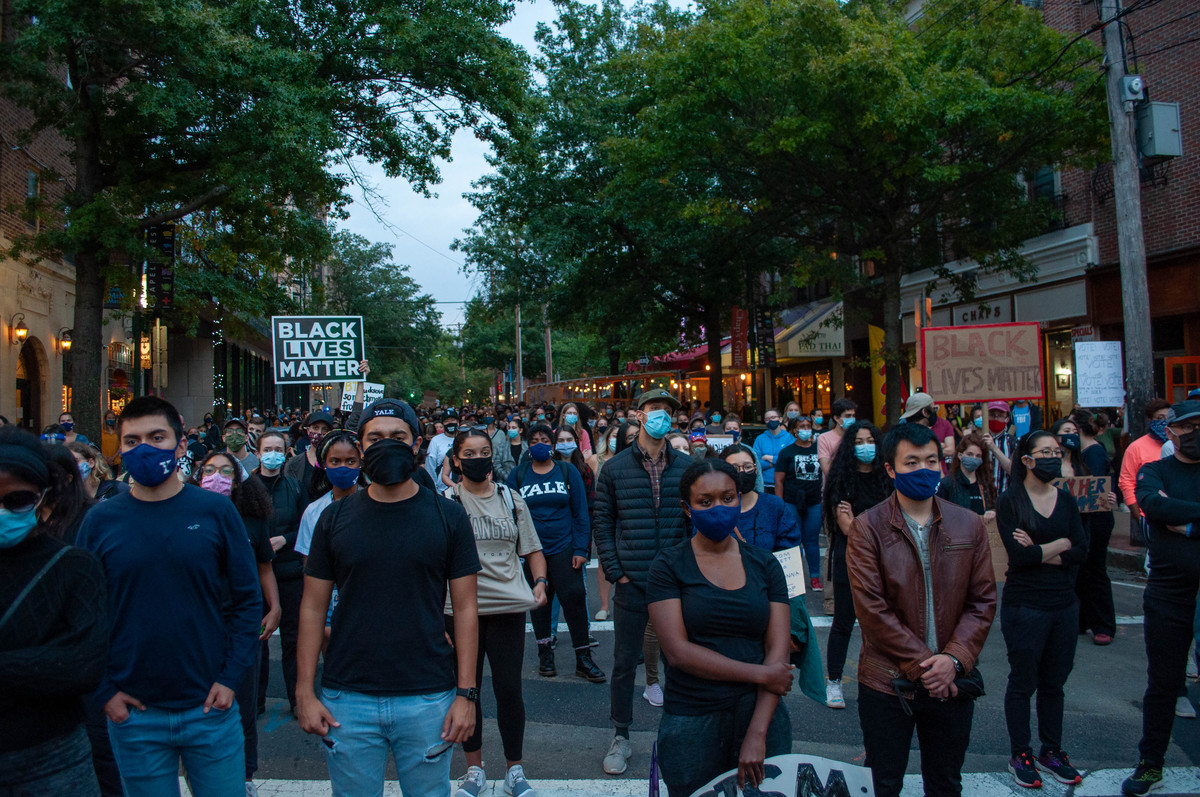African American Studies Department hosts first colloquium of the year
The department kicked off its Endeavors Colloquium with a panel called “Black Activism Amidst Community Violence.”

Pranav Senthilvel, Contributing Photographer
The African American Studies Department held a panel discussion on Thursday titled “Black Activism Amidst Community Violence,” as the first event of the department’s Endeavors Colloquium.
The panel was facilitated by professor of psychology and African American studies Philip Atiba Goff. It featured University of California, Berkeley African American studies professor Nikki Jones, pastor Michael McBride, professor of sociology and public affairs at Princeton University Patrick Sharkey and presidential visiting assistant professor Brandon Terry. Their conversation focused on violence in recent times, including the Black Lives Matter movement and intra-community crime. Goff said that the conversation was framed around what activists and organizers can do “in this moment” to help minimize community violence.
“The past two years have seen the largest single set of protests in human history by all accounts,” Goff said at the event. “They were around racial injustice in our public safety and policing systems in the United States, but they went global. Those protests and the organizing and activism … that was in response to them has not stopped, and yet at the same time the lever, the pendulum of momentum have shifted in those two years.”
Goff went on to speak about how, in reality, the changes resulting from those massive protests were “much smaller in the national narrative.” He added that the increased violence following various protests delegitimized the resulting changes for some people.
Goff emphasized that “the murder spike is real,” before questioning the true nature of that spike, then centering the conversation around Black liberation.
“I’m joining you at a moment that is really a reflective moment for me and thinking about what we’ve learned from the uprising of summer 2020 that especially in the context of policing over the course of my career and seeing for the first time … intertwining uprisings against systemic racism and police violence,” Jones said.
Jones discussed how the difference in police treatment towards Black Lives Matter protestors and those at the Jan. 6 Capitol riot revealed a significant disparity in the way that the police interact with various protestors.
McBride spoke about introducing new language to frame the conversation and asked how those who are advocating for change can create new language together to truly represent what they mean without having the conversation co-opted.
“Something about our department colloquium is it is department-wide,” Jacqueline Goldsby, chair of the Department of African American studies, said at the beginning of the event. “Other departments tend to organize by subfields. But we bring everyone together because in African American studies when we approach questions and issues and plan-making we want to pursue it interdisciplinarily, bringing the disciplines together.”
Goldsby said this year the series would focus on “breakthrough ideas, breakthrough models, breakthrough provocations” that are coming from the social sciences.
This event saw panelists testing new ideas and pushing each other’s thoughts in an effort to discuss rather than just project.
“It’s a space for incubating in fostering new ideas, new art, new scholarship, new ways to be engaged in community work,” Goldsby said. “And so, we’re really excited to be thinking at the end of what’s happening in our respective disciplines but together to move the new ideas. To push the endeavors out, hence the title of our series.”
On March 31, the department will be hosting a panel on the anthropology of abolition, facilitated by Aimee Cox.







